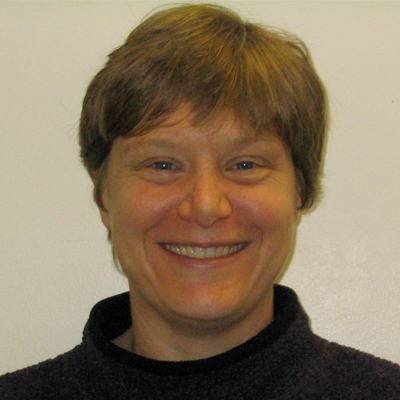Understanding how we learn to improve learning
The brain: that complex organ each of us relies upon each day for unconscious tasks like breathing and for complex thinking and behavior. What causes this three pound soft convoluted mass of gray and white matter to give rise to our mind? Dr. Julie Fiez, of the University of Pittsburgh, researches how complex thoughts and behaviors are related to underlying brain functions. “I want to unpack that black box,” Dr. Fiez explains, as she describes the hope of explaining the ways in which experience can transform our brains. Her research, although basic, sits in an experimental space where it can potentially impact our knowledge of how we learn, how to improve learning, and when learning goes wrong.
Dr. Fiez’s research uses a combination of behavioral and brain imaging methods to study research volunteers with normal brain function and with impaired brain function due to a developmental or acquired brain disorder. Nestled under the broad category of “educational neuroscience,” Dr. Fiez’s work has a goal of translating basic research into an improved understanding of effective educational practices and interventions. Studying primarily college age students and patients with brain damage, Dr. Fiez’s team is able to shed light upon the process of learning and thus understand important regions of the brain that will affect the population at-large. With a collaborative team including experts in communication science and disorders, cognitive science, neurobiology, neurology, and neurosurgery, Dr. Fiez and her team provide an academically rigorous context for the science of learning.
Current research includes:
-
Brain Literacy: Scientists know that skilled reading hinges upon a particular brain region, called the visual word form area. But it is unknown how this region, which is about the size of a sugar cube, develops the ability to rapidly represent the more than 20,000 printed words known by the typical adult reader, and how knowledge about the visual forms of words is integrated with knowledge about the sound and meaning of each word that we know. Dr. Fiez aims to learn more about this region and how it becomes specialized for reading. By gaining new insights into effective reading instruction and intervention, her research holds promise for impacting individuals with dyslexia in a profound way.
-
Mathematical Ability: Dr. Fiez is studying the brain regions that are critical for mathematical ability. She and her team are especially interested in how knowledge about mathematical symbols is integrated with knowledge about the quantities that these symbols represent. She and her team have used their knowledge of brain systems to develop a math training program that is designed to improve this integration, and shown that it is effective in improving math abilities. This work has been laboratory based, but can now be applied to real world settings.
-
Learning Systems of the Brain: “Practice makes perfect”; why is the old adage true? Dr. Fiez is investigating the different learning systems of the brain to make sense of the role of feedback and error detection in learning. This research has progressed to the point where she and her team are investigating the use of specially-designed video games to improve the speech perception of individuals who are learning English as a second language.
Bio
Dr. Fiez became a researcher because she had an incredibly influential high school biology teacher. Her teacher required students to complete independent research projects throughout the year. Dr. Fiez still remembers her final project, which involved measuring the territories of a group of red-wing blackbirds at a local pond in Idaho. She was amazed to see these very clear circular territories emerge for each male when she plotted the flight pattern data that she had gathered over several viewing sessions. Despite the simplicity of the project, Dr. Fiez became enthusiastic about the scientific discovery process.
Now, as a researcher scientist, Dr. Fiez studies educational neuroscience which brings together her love of scientific research, deep interest in how the brain gives rise to the mind, and dedication to teaching and mentoring. Motivated by curiosity and a zest for learning, Dr. Fiez believes that science can make a true difference in the world.
In her free time, aside from research, Dr. Fiez enjoys gardening and spending time with her two sons cheering for them on the sidelines of their soccer games!
Website: http://www.lrdc.pitt.edu/fiez/


